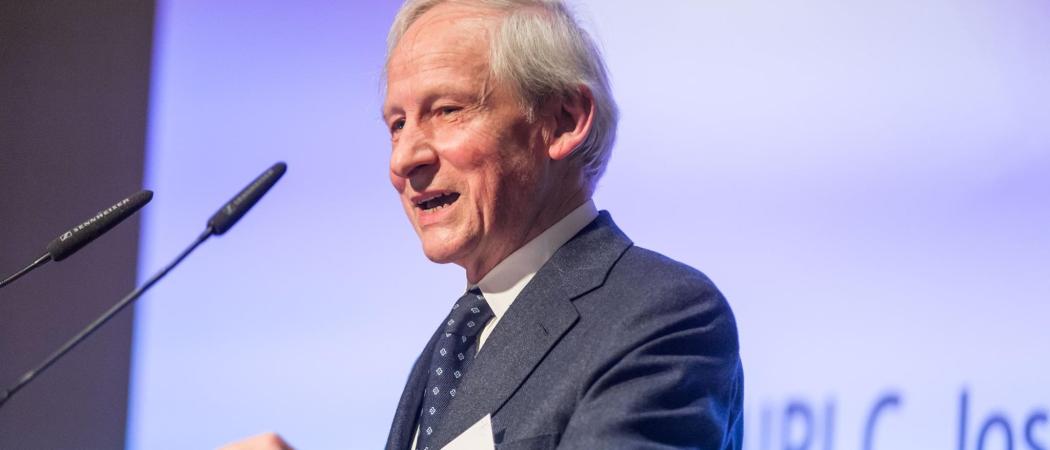It is naïve to put EU research data on the open science cloud without having a plan to protect intellectual property. ‘That makes me nervous,’ says Joseph Straus, former director of the Max Planck Institute for IP

Joseph Straus. Photo: Munich Intellectual Property Law Center
Europe must do a better job of protecting intellectual property (IP) arising from publicly funded research and come up with more incentives for knowledge transfer, if it is to achieve its ambitious goals in global innovation, according to Joseph Straus, a professor of intellectual property law and former director of the Max Planck Institute for Intellectual Property.
As a leading case in point, Straus points to the European Open Science Cloud, where it is planned to store all data coming out of publicly funded research, and open it to the public. Straus complains that the European Commission is not taking IP protection into account in the project. The idea of an open science cloud seems “naïve without a concrete plan on how the EU should protect the general macroeconomic interest,” he told Science|Business.
Straus, a patent lawyer and former chair of the IP committee of the Human Genome Organisation, says the EU should not open its research data to other parts of the world without reciprocity. Such data is the feedstock of artificial intelligence, a platform technology which is expected to transform the global economy and underpin geopolitics for generations to come.
Along with the need for reciprocal agreements, the plan to open up science data should come with stronger provisions for IP protection and technology transfer so that competitors like China, South Korea and the US do not reap the benefits of the EU’s costly investment in science. “Do [competitors] also have an open science cloud to which EU would have unlimited access?” Straus asked. “[The EU] cannot be the naïve one and play nice.”
As things stand, EU ambitions in artificial intelligence and building the open science cloud have a blind spot when it comes to IP protection. “That makes me nervous,” Straus said.
Focus on IP
Straus chairs a working group on intellectual property at the European Federation of Academies of Sciences and Humanities (ALLEA). In a report published last month, the group called on national and EU policy makers and science organisations to incentivise the translation of publicly funded research results into IP-protected innovative products and processes.
European and national legislators should introduce a grace period into patent law and lower taxes on income generated through the commercialisation of publicly funded research, the report says. “Academic institutions in Europe do not have a clear understanding of commercialisation and exploitation,” said Straus.
European publicly funded research organisations compete with counterparts in the US, China, Japan and South Korea, but underperform in translating their research findings into innovative products and processes.
In central and eastern Europe, with the exception of Poland and Slovenia, European Patent Office data shows the region is lagging further behind, even in countries with strong history of IP protection such as Hungary.
ALLEA produced the report at the request of the Austrian academy of science. “They had the feeling that something more substantial should be produced in this respect,” said Straus.
Tax cuts and new laws
The report calls on national and EU legislators to give tax cuts for income generated through the commercialisation of publicly funded research.
In Germany, until the early 1980s, the income from licensing was taxed at half the normal rates, but rules changed and the tax incentive disappeared due to concerns over creating an unfair competitive advantage for certain enterprises.
According to Straus, the German pharmaceuticals industry lost its global leadership position because of the tax shift. US companies invest a lot of money in European technologies such as stem cells and gene therapy because they are “supported by tax privileges,” he said.
Straus also argues the EU needs something similar to the Bayh-Dole Act in the US. Passed in 1980, the law allowed small businesses and non-profit organisations, including universities, to retain IP rights resulting from publicly funded research.
This has encouraged investors to pour more money in promising research. Europe now spends on average 3.3 times more on research than the US to earn €1 million in licence fees, the ALLEA report notes.
“My preaching is Europe must understand that IP is an important factor in this context,” said Straus.




 A unique international forum for public research organisations and companies to connect their external engagement with strategic interests around their R&D system.
A unique international forum for public research organisations and companies to connect their external engagement with strategic interests around their R&D system.